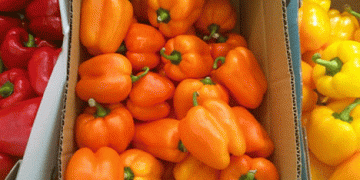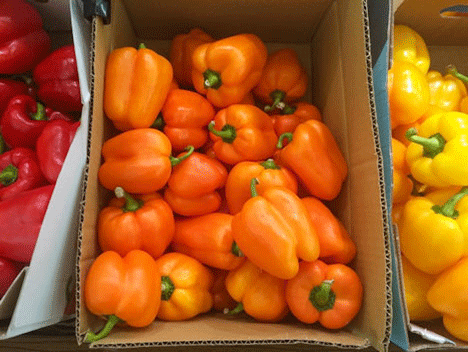In the 2023/24 season, Almería, Spain, has showcased its robust agricultural sector by exporting 2,584.62 million kilograms of fruits and vegetables, valued at approximately €3.64 billion. This impressive figure underscores Almería’s significance as a key player in the European produce market, even as it navigates a slight decline in export volumes compared to previous years.
A Detailed Look at Almería’s Exports
According to Hortoinfo, based on data from Estacom (ICEX – Agencia Tributaria) and the Integrated Tariff of the European Communities (TARIC), the amount of fruits and vegetables exported by Almería has decreased over the past four seasons. The peak was recorded in the 2020/21 season with 3,027.12 million kilograms exported. The latest season marks a reduction of 442.5 million kilograms from that high.
Leading Products in Export
In the 2023/24 season, the top exported product from Almería was bell peppers, with 511.03 million kilograms shipped, generating a value of €977.35 million at an average price of €1.91 per kilogram. Following closely were:
- Cucumbers: 493.8 million kilograms exported, worth €650.8 million at an average price of €1.32 per kilogram.
- Tomatoes: 396.06 million kilograms exported, valued at €632.89 million, with an average price of €1.60 per kilogram.
These figures illustrate the significant role that these vegetables play in Almería’s agricultural economy.
Key Export Markets
Germany remains the largest importer of Almería’s fruits and vegetables, purchasing 975.88 million kilograms valued at €1.35 billion, with an average price of €1.39 per kilogram. France follows as the second-largest market, receiving 347.44 million kilograms worth €431.12 million at an average price of €1.24 per kilogram. The Netherlands ranks third, importing 278.74 million kilograms for €404.47 million, averaging €1.45 per kilogram.
Implications for the Agricultural Sector
While the reduction in overall export volume may raise concerns, it is important to recognize the high value generated per kilogram, indicating that Almería’s agricultural products are maintaining their market worth. The focus on high-quality produce could be a strategy for farmers to adapt to market demands while maximizing profitability.
Furthermore, the continued strong demand from key European markets like Germany and France reflects a stable consumption pattern that can be leveraged for future growth. Farmers and agronomists can benefit from this data to strategize planting cycles, improve product quality, and explore new markets.
Almería’s performance in the fruit and vegetable export sector for the 2023/24 season highlights its critical role in the European agricultural landscape. Despite a decline in volume from its peak, the region continues to deliver high-quality produce, as evidenced by its significant export value. With established markets in Germany, France, and the Netherlands, Almería is well-positioned to adapt and thrive in an evolving agricultural environment.































